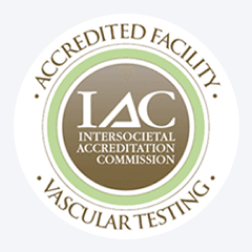Contents
- Understanding Pelvic Congestion Syndrome
- Recognizing Symptoms and Impact on Daily Life
- Does Pelvic Congestion Syndrome Cause Weight Gain?
- Wellness Strategies for Managing PCS
- Natural Remedies for Pelvic Congestion Syndrome
- When to Seek Medical Advice
- Tracking Progress and Adjusting Your Plan
- Living Well with PCS
- Frequently Asked Questions
Living with Pelvic Congestion Syndrome (PCS) can be tough, especially when chronic pelvic pain and discomfort affect your daily routine. But understanding this condition is the first step toward managing symptoms and reclaiming your quality of life.
Many people with PCS find that simple lifestyle changes and natural remedies make a real difference in easing their symptoms and boosting overall well-being.
In this guide, we’ll share practical tips and wellness strategies designed to help you manage PCS more effectively. With the right knowledge and tools, you can take control of your health and live more comfortably every day.
Let’s explore how you can live well with PCS and start feeling better.
Understanding Pelvic Congestion Syndrome
PCS is a condition caused by varicose veins in the pelvic region. These veins become enlarged and lead to chronic pain and discomfort.
The exact cause of PCS is not fully understood. It often involves structural changes in pelvic veins, which can affect blood flow. Hormonal factors, such as elevated estrogen levels, may also play a role.
PCS most often affects women, particularly those who have experienced multiple pregnancies, but men can also be impacted. Without treatment, symptoms may worsen over time, interfering with daily routines and reducing quality of life.
Key characteristics of PCS include:
- Chronic pelvic pain
- Varicose veins in the pelvis
- Discomfort that worsens over time
Understanding PCS helps in finding effective treatment and management options.
Recognizing Symptoms and Impact on Daily Life
Recognizing the symptoms of pelvic congestion syndrome is crucial in managing the condition effectively. PCS symptoms can vary, but they often involve consistent pelvic pain.
This pain is usually described as a dull ache that can intensify after prolonged standing or sitting. Other accompanying symptoms might include a sense of pelvic fullness or bloating.
PCS can significantly alter daily routines and quality of life. For many, the discomfort affects their ability to work or engage in physical activities. Emotional well-being may also be impacted by persistent pain and fatigue.
By recognizing these symptoms, individuals can seek appropriate guidance and interventions. Early diagnosis and treatment planning are essential to mitigate daily life disruption.
Does Pelvic Congestion Syndrome Cause Weight Gain?
Pelvic congestion syndrome can indirectly contribute to weight gain for some patients. Reduced physical activity due to chronic pain might lead to lower energy expenditure. This, in turn, could potentially result in weight changes.
Hormonal imbalances associated with PCS might also influence weight. It’s essential to maintain an active lifestyle within one’s comfort level to mitigate these effects.
Managing weight with PCS involves being mindful of both diet and activity levels. Consider these factors:
- Reduced physical activity
- Hormonal influences
- Necessary adjustments in lifestyle and diet
By understanding these connections, patients can better navigate their condition and maintain a healthy weight.
Wellness Strategies for Managing PCS
Managing pelvic congestion syndrome involves adopting tailored wellness strategies that support overall health. Regular physical activity can significantly ease symptoms. It improves circulation and reduces chronic pain.
A balanced diet plays a crucial role. It can help prevent constipation, which often worsens PCS discomfort. Staying hydrated is also vital, as it enhances vascular health and supports the body’s functions.
Stress management is another essential aspect. Techniques such as yoga, meditation, or deep breathing can offer relief. These activities help to reduce tension and promote relaxation.
Supportive garments like compression tights might provide comfort. These can help by relieving pressure on the affected veins.
By integrating these strategies into daily life, patients can improve their quality of life despite PCS.
Exercise and Movement
Consistent exercise helps in alleviating PCS symptoms by boosting blood flow. Engaging in moderate activities like walking, swimming, or cycling can be very beneficial. These exercises reduce pain and improve overall health.
Choose activities that are low-impact but effective. Regular movement prevents venous congestion and enhances well-being. Incorporating simple stretches can further reduce pelvic tension.
Here’s a suggested list of exercises:
- Walking
- Swimming
- Cycling
- Gentle yoga
These activities help ease discomfort and promote overall wellness. Finding the right exercise routine can make a significant difference in managing PCS.

Diet and Nutrition
Nutrition is key to managing PCS symptoms effectively. A diet rich in fiber can prevent constipation, which can aggravate pelvic congestion. Opt for whole grains, fruits, and vegetables to maintain digestive health.
Hydration is equally crucial. Drinking sufficient water daily supports circulation and prevents strain on the veins. Aim for eight or more glasses of water each day.
Consider adding the following to your diet:
- High-fiber foods like oats
- Leafy greens and vegetables
- Lean protein sources
- Plenty of water
By prioritizing diet and hydration, patients can experience symptom relief and improved health.
Weight Management
Managing weight is important in relieving PCS symptoms. Excess weight can increase pressure on the pelvic veins, worsening discomfort. A balanced approach to eating and activity can help maintain a healthy weight.
Focusing on gradual changes makes weight management sustainable. Incorporate small, consistent adjustments to lifestyle rather than drastic changes.
Here are some weight management tips:
- Monitor portion sizes
- Focus on nutrient-dense foods
- Engage in regular, enjoyable physical activities
These steps can help reduce pressure on the veins and manage PCS symptoms effectively.
Natural Remedies for Pelvic Congestion Syndrome
Natural remedies offer a holistic approach to managing PCS. While they shouldn’t replace medical treatment, they can complement it. Patients often seek these options to enhance their well-being.
Herbal remedies, for instance, may provide symptom relief. It’s vital to discuss these options with a healthcare provider first. Safety and efficacy should always be prioritized.
Other natural approaches focus on alternative therapies. Acupuncture and massage therapy are popular choices. Some patients find them beneficial for relieving discomfort.
Natural remedies can be a supportive element in the overall PCS management plan. Stay informed and choose what’s best for your condition.
Stress Reduction and Mind-Body Techniques
Managing stress is crucial in alleviating PCS symptoms. Stress can exacerbate pain and discomfort, but incorporating relaxation techniques can provide relief.
Mind-body practices like yoga and meditation are highly effective. They encourage mindfulness and help in reducing stress levels. Consistent practice fosters a sense of calm and relaxation.
Consider these stress-reduction methods:
- Regular yoga practice
- Daily meditation sessions
- Deep breathing exercises
Engaging in these practices can improve emotional well-being and physical health. They form a vital part of a comprehensive PCS management strategy.
When to Seek Medical Advice
It’s vital to know when professional help is necessary. If you experience worsening pain or new symptoms, consult your doctor.
Ignoring these signs might lead to complications later on. Timely intervention can make a significant difference in managing PCS.
Consider seeking medical advice if you notice:
- Increased pelvic pain or heaviness
- New symptoms affecting daily activities
- Concerns about current treatment plans
Tracking Progress and Adjusting Your Plan
Monitoring your condition helps you understand what strategies work best. Keeping a symptom diary can guide your efforts and highlight effective strategies.
Regularly review your progress and adapt your approach as needed. Discuss any significant changes or concerns with your healthcare provider.
Key points to track include:
- Symptom severity and frequency
- Effectiveness of lifestyle changes
- Physical and emotional well-being
Living Well with PCS
Living with Pelvic Congestion Syndrome means staying aware and adapting your lifestyle to manage symptoms effectively. By combining informed self-care with professional guidance, you can significantly improve your comfort and overall well-being.
Focus on boosting circulation through regular exercise, making dietary choices that support your symptoms, and prioritizing your emotional and mental health. Most importantly, keep an open line of communication with your healthcare provider to tailor a treatment plan that works for you.
If you’re ready to take control of your pelvic health, schedule a consultation with United Vein & Vascular Centers today. Our specialists are here to support you every step of the way, with treatments for this condition available exclusively at our state-of-the-art OBL clinics.
Frequently Asked Questions
Lifestyle adjustments like regular exercise, a balanced diet, and stress management can improve blood flow, reduce symptoms, and enhance overall well-being for those with PCS.
Natural approaches such as heat therapy, herbal supplements, and pelvic floor exercises may help alleviate discomfort, but it’s important to consult your healthcare provider before starting any new treatments.
If you experience persistent pelvic pain lasting more than six months or symptoms that worsen over time, it’s important to seek medical advice for proper diagnosis and treatment options.


